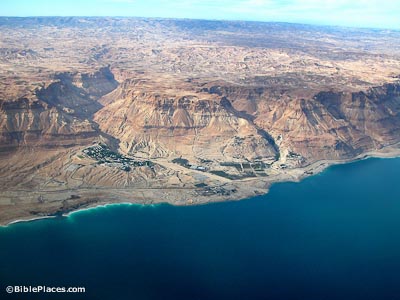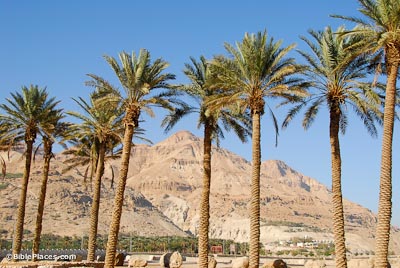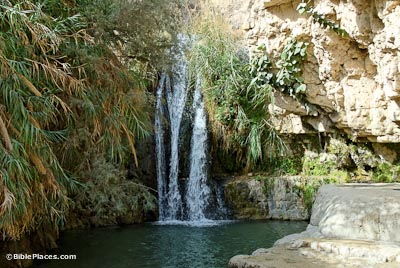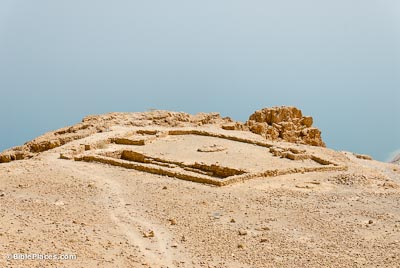
Bible Verse and Prayer for Today;
For by one offering he hath perfected for ever them that are sanctified.
Hebrews 10:14
Prayer
Lord , Thank you for the Perfect offer You gave us called the Lamb of God , via His offer we can now enter the Holy and The Holy of Holy’s in Holiness . without Holiness when will never see Heaven , Help is with this process of Change , we Pray in Jesus name , Amen and Amen
Prayer Tips
Prayers in the Old Testament
- Elijah’s Prayer for Rain- Blessings from God
1Kings 18:41 and Elijah said unto Ahab, Get thee up, eats and drinks; for
there is a sound of abundance of rain.
42 So Ahab went up to eat and to drink. And Elijah went up to the top of
Carmel; and he cast himself down upon the earth, and put his face
between his knees,
43 And said to his servant, Go up now, look toward the sea. And he went
up, and looked, and said, there is nothing. And he said, Go again seven
times.
44 And it came to pass at the seventh time, that he said, Behold, there
ariseth a little cloud out of the sea, like a man’s hand. And he said, Go
up, say unto Ahab, Prepare thy chariot, and get thee down, that the
rain stop thee not.
45 And it came to pass in the mean while, that the heaven was black with
clouds and wind, and there was a great rain. And Ahab rode, and went
to Jezreel.
46 And the hand of the LORD was on Elijah; and he girded up his loins,
and ran before Ahab to the entrance of Jezreel. - God will send His answer to you, witness to other what God has done for you.
- Have and show faith.
- Have and show respect to God.
- Manifest your Faith.
- Wait on Gods answers, don’t give up.
- Expect a Miracle, God always answer in multitude.
Bybel Vers en Gebed vir Vandag
Want deur een offer het Hy vir ewig volmaak die wat geheilig word.
Hebreërs 10:14
Gebed
Here, dankie vir die volmaakte offer wat U aan ons gegee het, naamlik die Lam van God. Deur Sy offer kan ons nou die Heilige en die Heilige van die Heiliges in Heiligheid binnegaan. Sonder Heiligheid sal ons nooit die Hemel sien nie. Hulp is met hierdie proses van Verandering. Ons bid in Jesus se Naam. Amen en Amen.
Gebed Wenke
Gebede in die Ou Testament
Elia se Gebed vir Reën – Seëninge van God
1Kon 18:41 Toe sê Elía vir Agab: Trek op, eet en drink, want hoor, die gedruis van die reën!
42 En Agab het opgetrek om te eet en te drink; maar Elía het op die top van die Karmel geklim en hom op die grond neergebuig en sy aangesig tussen sy knieë gesteek.
43 Daarop sê hy vir sy dienaar: Klim tog op, kyk uit na die see. En hy het opgeklim en uitgekyk en geroep: Daar is niks nie. Toe sê hy: Gaan weer—sewe maal.
44 En die sewende maal roep hy: Daar gaan ‘n wolkie soos ‘n man se hand op uit die see. Toe sê hy: Gaan op, sê vir Agab: Span in en trek af, dat die reën jou nie terughou nie.
45 En in ‘n oogwink was die hemel swart van wolke en wind, en ‘n groot reën het gekom; en Agab het op die wa geklim en weggetrek na Jísreël;
46 maar die hand van die HERE was oor Elía, sodat hy sy heupe omgord en voor Agab uit geloop het in die rigting na Jísreël.
- God sal Sy antwoord aan jou stuur. Getuig aan ander wat God vir jou gedoen het.
- Hê en wys geloof.
- Hê en wys respek aan God.
- Manifesteer jou Geloof.
- Wag vir antwoorde van God af, moenie opgee nie.
- Verwag ‘n wonderwerk, God antwoord altyd in die veelvoud.

Bible Teaching of the Day
In Jeremiah 31 the prophet refers to a proverb that people used in his day. It went like this:
“The fathers have eaten sour grapes,
and the children’s teeth are set on edge” (Jeremiah 31:29, ESV).
The proverb (which also appears in Ezekiel 18:2) has to do with responsibility. The people who were experiencing hardship pointed to others as the cause; they said, “God is judging us because of the sins of our fathers.”
The context is God’s announcement that He will make a new covenant with Israel and Judah (Jeremiah 31:31), in contrast to the Old Covenant (Jeremiah 31:32). One of the characteristics of the Old Covenant (or the Mosaic Covenant) was its conditional nature. If Israel obeyed God, He would allow the nation to live in the land in peace. If, on the other hand, Israel disobeyed God and broke the covenant, God would judge them and remove the nation from the land. The blessings and cursings were corporate: the whole nation rose or fell together. So, to many Israelites, it seemed like the proverb was true: God would punish “the children for the sin of the parents to the third and fourth generation” (Exodus 20:5). In their use of the proverb, however, they were ignoring personal responsibility.
Jeremiah had been sent to proclaim the inevitability of God’s judgment and the people’s exile from the land. The people blamed King Manasseh’s sin—he was the “father” who had eaten the sour grapes—and they excused themselves—it was their teeth set on edge. But God also announces, through Jeremiah, that days were coming when He would bring His people back to the land of Israel, and He would watch over them “to build and to plant” rather than to destroy (Jeremiah 31:28, ESV). The restoration would include individual blessings for individual people who were of Israel (Jeremiah 31:25). God would bring people and beasts back into the land (Jeremiah 31:27).
God explains that in those days of restoration it will no longer be said that the fathers have eaten sour grapes and the children’s teeth are set on edge (Jeremiah 31:29). The judgment would be removed, and the people would see that each individual is held accountable for his own iniquity. Blame-shifting would cease. The one who eats the sour grapes will have to deal with the consequences himself (Jeremiah 31:30).
In the Mosaic Covenant, the actions of the fathers did, to an extent, impact the sons’ ability to enjoy the land. What one generation did could indeed impact the next. The fathers would eat sour grapes, and the children’s teeth were set on edge. Because of previous generations of failure, the nation of Israel endured exile in Babylon. But it was not right for the children of Israel to cast off all responsibility. They spouted the proverb as if they bore no guilt at all. But it was their sin that also contributed to the judgment.
God explains that the New Covenant with Israel and Judah will bring a different perspective (Jeremiah 31:31–32). Each person will be accountable for himself, and God will provide him with righteousness. God promises,
“I will put my law in their minds
and write it on their hearts.
I will be their God,
and they will be my people” (Jeremiah 31:33).
In addition, each person under the New Covenant will know God, and all will be forgiven of their sin (Jeremiah 31:34). Under the Mosaic Covenant, Israel was accountable as a nation for their sin. Under the New Covenant, God will hold each individual accountable and provide for each person’s righteousness. No longer would Israel have occasion to say that the fathers have eaten sour grapes and the children’s teeth are set on edge.
The New Covenant that God promises to make for Israel and Judah is unconditional, being based purely on the work of God. He will accomplish individual responsibility and individual righteousness by forgiving the people’s sins. Jesus ratified this covenant when He died on the cross. With His shed blood, He paid for the sins of all who would receive the blessings of the New Covenant (Israel and Judah)—and He paid for the sins of all the rest of humanity, in fulfillment of God’s promise to Abraham (Genesis 12:3b).
God is faithful and trustworthy. Even though the fathers may have eaten sour grapes, no longer will the children’s teeth be set on edge. Each person is accountable before God, and each person can be righteous in God’s sight by putting his or her belief in Jesus.
Bybel Lering vir die Dag
In Jeremia 31 verwys die profeet na ‘n spreuk wat mense in sy tyd gebruik het. Dit het so gelui:
“Die vaders het suur druiwe geëet, en die kinders se tande het stomp geword” (Jeremia 31:29).
Die spreuk (wat ook in Esegiël 18:2 verskyn) het te doen met verantwoordelikheid. Die mense wat swaarkry ervaar het, het na ander as die oorsaak gewys; hulle het gesê: “God oordeel ons oor die sondes van ons vaders.”
Die konteks is God se aankondiging dat Hy ‘n nuwe verbond met Israel en Juda sal sluit (Jeremia 31:31), in teenstelling met die Ou Verbond (Jeremia 31:32). Een van die kenmerke van die Ou Verbond (of die Mosaïese Verbond) was die voorwaardelike aard daarvan. As Israel God gehoorsaam het, sou Hy die nasie toelaat om in vrede in die land te woon. As Israel daarenteen ongehoorsaam was aan God en die verbond verbreek het, sou God hulle oordeel en die nasie uit die land verwyder. Die seëninge en vervloekinge was gesamentlik: die hele nasie het saam opgestaan of geval. Dus, vir baie Israeliete, het dit gelyk of die spreuk waar was: God sou “die kinders straf vir die sonde van die ouers tot in die derde en vierde geslag” (Eksodus 20:5). In hul gebruik van die spreuk het hulle egter persoonlike verantwoordelikheid geïgnoreer.
Jeremia is gestuur om die onvermydelikheid van God se oordeel en die volk se ballingskap uit die land te verkondig. Die mense het koning Manasse se sonde blameer – hy was die “vader” wat die suur druiwe geëet het – en hulle het hulself verskoon – dit was hul tande wat op die punt gesit het. Maar God kondig ook, deur Jeremia, aan dat dae sou kom wanneer Hy Sy volk na die land van Israel sou terugbring, en Hy oor hulle sou waak “om te bou en te plant” eerder as om te vernietig (Jeremia 31:28). Die herstel sou individuele seëninge insluit vir individuele mense wat van Israel was (Jeremia 31:25). God sou mense en diere terugbring na die land (Jeremia 31:27).
God verduidelik dat daar in daardie dae van herstel nie meer gesê sal word dat die vaders suur druiwe geëet het en die kinders se tande stomp geword het nie (Jeremia 31:29). Die oordeel sou verwyder word, en die mense sou sien dat elke individu verantwoordelik gehou word vir sy eie ongeregtigheid. Blaamverskuiwing sou ophou. Die een wat die suur druiwe eet, sal self met die gevolge moet handel (Jeremia 31:30).
In die Mosaïese Verbond het die optrede van die vaders tot ‘n mate die seuns se vermoë om die land te geniet, beïnvloed. Wat een geslag gedoen het, kon inderdaad die volgende beïnvloed. Die vaders sou suur druiwe eet, en die kinders se tande was stomp. As gevolg van vorige geslagte van mislukking het die nasie Israel ballingskap in Babilon verduur. Maar dit was nie reg vir die kinders van Israel om alle verantwoordelikheid af te werp nie. Hulle het die spreekwoord uitgespreek asof hulle glad nie skuldig was nie. Maar dit was hulle sonde wat ook tot die oordeel bygedra het.
God verduidelik dat die Nuwe Verbond met Israel en Juda ‘n ander perspektief sal bring (Jeremia 31:31–32). Elke persoon sal vir homself verantwoordelik wees, en God sal hom van geregtigheid voorsien. God belowe:
“Ek sal my wet in hulle gedagtes gee
en dit op hulle harte skryf.
Ek sal hulle God wees,
en hulle sal my volk wees” (Jeremia 31:33).
Daarbenewens sal elke persoon onder die Nuwe Verbond God ken, en almal sal vergewe word van hulle sonde (Jeremia 31:34). Onder die Mosaïese Verbond was Israel as ‘n nasie verantwoordelik vir hulle sonde. Onder die Nuwe Verbond sal God elke individu verantwoordelik hou en voorsien vir elke persoon se geregtigheid. Israel sou nie meer die geleentheid hê om te sê dat die vaders suur druiwe geëet het en die kinders se tande stomp geword het nie.
Die Nuwe Verbond wat God belowe om vir Israel en Juda te maak, is onvoorwaardelik en is suiwer gebaseer op die werk van God. Hy sal individuele verantwoordelikheid en individuele geregtigheid volbring deur die mense se sondes te vergewe. Jesus het hierdie verbond bekragtig toe Hy aan die kruis gesterf het. Met Sy gestorte bloed het Hy betaal vir die sondes van almal wat die seëninge van die Nuwe Verbond (Israel en Juda) sou ontvang – en Hy het betaal vir die sondes van die res van die mensdom, ter vervulling van God se belofte aan Abraham (Genesis 12:3b).
God is getrou en betroubaar. Al het die vaders suur druiwe geëet, sal die kinders se tande nie meer stomp wees nie. Elke persoon is verantwoordelik voor God, en elke persoon kan regverdig wees in God se oë deur sy of haar geloof in Jesus te plaas.

Today’s Devotional
“SOMEONE”
King Solomon wanted to build a house for God. To do this, he needed cedar wood. He sent a message to Hiram, the king of Tyre, saying: “Now therefore command that they cut cedars for me from Lebanon, and let my servants be with your servants, and I will give you wages for your servants according to your word; for you know that there is not among us any who know how to cut timber like the Sidonians.” (1 Kings 5:6). In plain English, Solomon is simply saying: “I need your help. Our carpenters are not as good as the carpenters of Sidon.”
Many times we face challenges. Many times we face problems. Often we do not know how to deal with them or what to do. We even ask, “Who cares?” In 1 Kings 5:6, Solomon teaches us two lessons. First, he teaches us to recognize when we can’t or don’t know, and then he teaches us to seek help. Solomon said, “We cannot do it, but I know your people can.” So if you are feeling down or in despair, I would like to tell you not to dare to go through it alone. We are not all carpenters, but there are some good carpenters out there.
Today I want to say, “Find help, find someone!”
First: Always trust in the Lord. He is still the “Best in the business.” He still listens and still cares. When we trust the Lord with all our heart, and lean not on our own understanding or understanding, He will make our paths straight. (Proverbs 3:5)
Seek or find someone else who can help. No matter what you are going through, God has already placed someone there to guide you and pray for you. Proverbs 12:15 says that a person who listens to advice is wise. But let me be clear: Whatever advice you receive, test it against God’s Word (the Bible). Pray about it and let God confirm it in your spirit. Whether you go to your pastor, visit a Bible counselor, or write to us, make sure that the advice you receive is in line with God’s Word.
But equally important is to also be “someone” to others in need. In a needy world, you can also be a good carpenter, like the carpenters of Sidon. Your testimony can help a lost sinner find Jesus. Your words of encouragement can guide a person in need. Your prayer can prevent a person from killing himself or herself. Your glass of water or piece of bread can give hope in a hopeless situation. Didn’t Jesus say? “Truly I say to you, inasmuch as you did it to one of the least of these my brothers, you did it to me.” (Matthew 25:40) Yes, you too can be a good carpenter in a needy world.
Let’s quickly go back to 1 Kings 5. Solomon asked and Hiram provided all the cedar he wanted. So if you ask, you will also receive. (See verse 10) But if you are the one who gives, you will also be blessed as Hiram was blessed by Solomon. (See verse 11)
Vandag se Bemoediging
“IEMAND”
Koning Salomo wou ‘n huis vir God bou. Om dit te kon doen, het hy sederhout nodig gehad. Hy stuur toe ‘n boodskap aan Hiram, die koning van Tirus waarin hy sê: ” Gee dan nou bevel dat hulle vir my seders uit die Líbanon kap, en laat my dienaars saam met u dienaars wees, en die loon van u dienaars sal ek u gee net soos u sê; want u weet self dat onder ons niemand is wat verstaan om bome te kap soos die Sidoniërs nie. “(1 Kon. 5: 6). In gewone Afrikaans sê Salomo eenvoudig:” Ek het jou hulp nodig. Ons skrynwerkers is nie so goed soos die skrynwerkers van Sidon nie. “
Baie keer staan ons voor uitdagings. Baie keer staar ons probleme in die gesig. Dikwels weet ons nie hoe om dit te hanteer of wat om te doen nie. Ons vra selfs: “Wie gee om?” In 1 Konings 5: 6 leer Salomo ons twee lesse. Eerstens leer hy ons om te erken waneeer ons nie kan of nie weet nie en dan leer hy ons om hulp te soek. Salomo het gesê: “Ons kan dit nie doen nie, maar ek weet dat jou mense kan.” Sou jy dus ontsteld wees of in wanhoop verkeer, sou ek graag vir jou wil sê om dit nie te waag waag om alleen daardeur te gaan nie. Ons is nie almal skrynwerkers nie, maar daar is ‘n paar goeie skrynwerkers daar buite.
Vandag wil ek sê: “Vind hulp, vind iemand!”
Eerstens: Vertrou altyd op die Here. Hy is steeds die “Beste in die besigheid”. Hy luister nog steeds en gee steeds om. Wanneer ons die Here vertrou met ons hele hart, en nie op ons eie insig of verstand staatmaak nie, sal Hy ons paaie gelykmaak. (Spreuke 3: 5)
Soek of kry ook iemand anders wat kan help. Maak nie saak waardeur jy gaan nie, God het reeds iemand daar geplaas om jou leiding te gee en vir jou te bid. In Spreuke 12:15 word geskryf dat ‘n persoon wat na raad luister, wys is. Maar laat ek dit duidelik maak: Watter raad jy ook al ontvang, toets dit teen God se Woord (Die Bybel). Bid daaroor en laat God dit in u gees bevestig. Of jy nou na jou predikant gaan, ‘n Bybelse berader besoek of aan ons skryf, maak seker dat die advies wat jy ontvang, in lyn is met God se Woord.
Maar ewe belangrik is om ook “iemand” te wees vir ander in nood. In ‘n behoeftige wêreld kan jy ook ‘n goeie skrynwerker wees, soos die skrynwerkers van Sidon. U getuienis kan ‘n verlore sondaar help om Jesus te vind. Jou woorde van bemoediging kan leiding gee aan ‘n persoon in nood. U gebed kan verhoed dat ‘n persoon hom of haarself doodmaak. Jou glas water of stukkie brood kan hoop gee in ‘n hopelose situasie. Sê Jesusdan nie? “Voorwaar Ek sê vir julle, vir sover julle dit gedoen het aan een van die geringstes van hierdie broeders van My, het julle dit aan My gedoen.” (Mattheus 25:40) Ja, jy kan ook ‘n goeie skrynwerker wees in ‘n behoeftige wêreld.
Kom ons gou terug na 1 Konings 5. Salomo het gevra en Hiram het al die sederhout voorsien wat hy wou hê. So as jy vra, sal jy ook ontvang. (Sien vers 10) Maar as jy die een is wat gee, sal jy ook geseën word soos Hiram deur Salomo geseën is. (Sien vers 11)

TruLight Ministries Daily Entertainment

TruLight TV – Guest Artist Sunday Drive
Are your dreams big enough? Sometimes our fears and failures can stop us from dreaming and from believing God can do the incredible. This video inspires you to have God-sized dreams again. Today’s guest artist on Gospel Music USA – Sunday Drive has been honored to receive 20 Entertainer and Vocal Group of the Year awards combined with multiple #1 songs. Mission Strive to positively influence the world through our music. To bring JOY. . . have light hearted family fun To be a LIGHT . . . shine it for the world to see. To show LOVE . . . share it in all we do. To live the LIFE . . . as disciples of Christ. Sunday Drives goal is to share our talents and faith to uplift the name of Jesus. Enjoy the music and message and share this video with your friends.
INTRODUCTION TO THE GOSPEL ARTISTS
MEET : IVAN PARKER

Ivan Ray Parker (born December 21, 1957) is an American Southern Gospel singer.
Musical career
Ivan Parker was raised in Sanford, North Carolina, where his father was a pastor in a Pentecostal church. In 1982, Parker joined the Singing Americans, and in 1983 he became lead vocalist of the Dove Award-winning group the Gold City Quartet. As a member of Gold City, he was named Favorite Lead Vocalist by Singing News from 1988 to 1993, and was named Favorite Male Vocalist from 1989 to 1995 and 1997. He was inducted into the Alabama Music Hall of Fame in 1993.
In January 1994, Parker began recording as a solo artist, and in 1995 he joined Bill and Gloria Gaither on the “Homecoming” tour. He continued touring with the Gaithers for 16 years. Occasionally, he would sing with tenor Kirk Talley, and pianist/baritone Anthony Burger in a group they called simply The Trio. From 2001 to 2004 and 2006 to 2016, The Singing News named him Favorite Soloist. In 2007 and 2008, he was voted Male Vocalist of the Year in the Singing News Fan Awards.
Parker’s 2008 compilation The Best of Ivan Parker: From the Homecoming Series reached #188 on the Billboard 200. Parker described his 2019 release, Feels Like Home, as having “more of a vintage sound”.
Personal life
Parker is married to Theresa, and they have two sons: Josh and Ryan.Josh sometimes performs with his father on tour.
Today on TruLight Radio XM

TruLight Radio XM 24/7
Program
GMT / UTC +2
00:15 Words to Live By Testimonies
01.15 Science Scripture and Salvation
02.15 Ground Works
04.00 Gospel Concert of the Day
05.00 The Daren Streblow Comedy Show
5:55 It is Today devotional
6:00 Gaither Homecoming Morning Show
7:15 Discover the Word
8.15 Destined for Victory
8:55 Science Scripture and Salvation
9:00 Holy Spirit Hour – Normally Sermons
10:15 Hope of the Heart
11:15 Unshackled
11.45 Words to Live By
12:15 Truth for Life
13:15 Living on the Edge with Chip Ingram
14:15 Focus on the Family
15:00 Kids Hour
16:00 In Touch with Dr. Charles Stanley
16:30 Groundwork
17:15 Live in the Light
18:15 Renewing your Mind
19:00 Gaither Homecoming Show
20:15 Growing Hope
21:15 Adventures in Odyssey Radio Drama
21:45 Bible Reading
22:15 Night-sounds
23.00 Good Old Country Gospel / Rhema Gospel Express
VISIT THE WEBSITE
https://TruLightRadioXM.org.za

Bible Prophecy in the News
The Eagle Wings and The Women with the 12 Stars around her Head are Fighting together ! REV 12

The Houthis have officially acknowledged the attacks, claiming both Israeli and American forces are involved.
A senior Israeli official confirmed to N12 News on Monday night that Israel is conducting joint airstrikes with the United States against Houthi targets in Yemen, following Sunday’s ballistic missile attack near Ben Gurion Airport.
According to Arabic media reports cited by N12, over 30 Israeli fighter jets are participating in the strikes on the port city of Hudaydah.
The Houthis have officially acknowledged the attacks, claiming both Israeli and American forces are involved.
The Houthi missile strike injured six people and temporarily grounded flights at Israel’s main international airport.
According to an initial Israeli Air Force inquiry, the missile was likely not intercepted due to a technical malfunction in the interceptor itself.
The investigation found no issues with the detection systems or alert protocols.
Officials stressed that the incident was isolated, noting that Israel has maintained a 95% success rate in intercepting missiles launched from Yemen since the war began.
Prime Minister Benjamin Netanyahu vowed retaliation, stating: “We have acted and will act again. There will be blows.”
Signs of the Times
Trump Lays down the Rules to Iran

In an interview on NBC‘s “Meet the Press” on Sunday, US President Donald Trump stated that his goal was a “total dismantlement” of Iran’s nuclear weapons program, adding, however, that he was open to allowing civilian nuclear energy.
“I think that I would be open to hearing it, you know?” Trump told interviewer Kristen Welker regarding the possibility of Iran developing a civilian nuclear energy program.
“Civilian energy, it’s called. But you know, civilian energy often leads to military wars. And we don’t want to have them to have a nuclear weapon. It’s a very simple deal,” he said.
Trump’s remarks in the interview weren’t the first time his administration indicated it may be open to the notion of an Iranian nuclear energy program.
In late April, US Secretary of State Marco Rubio said that Iran could keep its civilian nuclear program as long as it wasn’t enriching uranium for a nuclear bomb.
As nuclear talks between the two nations continue, the US is reluctant to seek a military solution, although the Trump Administration is determined to prevent Iran from developing a nuclear bomb, Rubio said.
“We do not want a war,” Rubio told US journalist Bari Weiss on her Honestly podcast.
“This is not a president who campaigned on starting wars,” he explained. “And as he said very clearly, Iran is not going to have a nuclear weapon, and he reserves every right to prevent that from happening, but he would prefer it not happen. He would prefer that there is no need to resort to military force by us or anybody else. He would prefer that it’d be something that we can negotiate.”
“The Iranians have shown a willingness to talk. We’re going to talk to them,” Rubio stressed, adding that “if Iran wants a civil nuclear program, they can have one just like many other countries in the world have one. That is, they import enriched material.”
Any military conflict would “trigger a broader conflict” and should be avoided, if possible, he concluded.
Gog and Magog Update
All News Highlights the Past 24 Hours
| “Unlike in the past, the IDF will remain in every area that is conquered in Gaza, to prevent the return of terrorism,” a security source says. |
| The Israel Defense Forces (IDF) views 2025 as a defined year of war, maintaining an intense operational tempo across multiple arenas, with a heavy focus on Gaza and Iran. At the same time, the IDF is planning to undertake “adaptation and force development” driven by current and future threats. |
Iran unveils new ballistic missile amid regional tensions
The Iranian Qassem-Bissat missile, boasts a 1,200 km range, thermal imaging guidance, and advanced maneuverability to evade top-tier defenses like THAAD, making it a formidable threat in modern warfare.
| In this exclusive interview, Colonel Kemp breaks down the latest in our 7 front war, from Gaza, Iran, the Houthis, Syria and beyond. Do not miss hearing about Israel’s multi-front war from one of the world’s leading military experts, Colonel Richard Kemp. |
Places in the Bible
En Gedi
Also known as Tel Goren, Tell el-Jurn, Tell Jurn, ‘Ain Jidi, ‘Ein Jidi, ‘En Gedi, En-gedi, Ein Gedi, Eggadi, Engaddi, Engedi, Hazazon Tamar, Hazazon-tamar, Hazazontamar, Hazezontamar

Dead Sea Oasis
En Gedi is the largest oasis along the western shore of the Dead Sea. The springs here have allowed nearly continuous inhabitation of the site since the Chalcolithic period (ca. 3500 BC). The area was allotted to the tribe of Judah, and was famous in the time of Solomon (Josh 15:62). Today, the Israeli kibbutz of En Gedi sits along the southern bank of the Nahal Arugot.
Famous Vineyards
The abundant springs and year-round temperate climate provided the perfect conditions for agriculture in ancient times. Solomon compared his lover to “a cluster of henna blossoms from the vineyards of En Gedi,” an indication of the beauty and fertility of the site (Song 1:14). Evidence has been found of workshops used in the perfume industry to distill products made from balsam. It has even been suggested that the perfume production at En Gedi was part of a royal estate.


Springs
Even though there are many springs around the Dead Sea, most of them have a high salt content. En Gedi is one of only two freshwater springs located on the western shore of the Dead Sea and, because of the greater availability of land for agriculture at En Gedi, it is the best spring by which to settle.
Josephus praised En Gedi for its palm trees and balsam, and the writer of Ecclesiasticus spoke of wisdom that was exalted “like a palm tree in En Gedi” (24:14). One day, the prophet Ezekiel predicted, fishermen would line the shores of the Dead Sea by En Gedi (47:10).
David’s Flight from Saul
Around 1000 BC, En Gedi served as one of the main places of refuge for David as he fled from Saul. David “dwelt in strongholds at En Gedi” (1 Sam 23:29). En Gedi means literally “the spring of the kid (goat).” Evidence exists that young ibex have always lived near the springs of En Gedi. One time when David was fleeing from King Saul, the pursuers searched the “Crags of the Ibex” in the vicinity of En Gedi. In a cave near here, David cut off the corner of Saul’s robe (1 Sam 24).


Chalcolithic Temple
The earliest remains at En Gedi are of a temple from the Chalcolithic Period (ca. 4000–3150 BC). Archaeologists believe that this is proof that En Gedi supported a significant settlement at that time. The “Cave of Treasure” in the Nahal Mishmar was excavated by P. Bar-Adon and is thought to be connected with this temple. The cave is approximately six miles (10 km) south of En Gedi. A hoard of extremely well-preserved artifacts was found in the cave, most of which were made of copper. It has been suggested that the articles were used in the temple rituals at En Gedi and were hid in the cave for safekeeping.
TruLight Ministry News

TruLight Ministries orders from God since 2012 . Teach Them , Comfort Them and Warn Them!
////////////
TruLight Ministries opdrag vanaf God sedert 2012. Leer hulle, Troos hulle en Waarsku hulle!
PASTOOR DIRK LEER DIE WEEK MET AUDIO OOR DIE DOOPING VAN DIE HEILIGE GEES , NR 2 VAN 6
TruLight School of Theology have started with Its daily Bible Study – Pastor Counselling Certificate – we are Starting with 36 Studies with 10 Studies per Topic from 1st of April 2025 – Over the Next 2 Years we will Include One Daily Study per Topic on this Platform. The Daily Manna Bible Study will be Available in English and Afrikaans!
We will Start with a 68 week Study on “Know Your Bible” Daily Bible Summaries of every Chapter in the Bible! From the Old Testament to the New Testament , from Genesis to Revelation 66 Books of the Bible.
Started 1st April 2025
This is our Study Principals:
SOAP
Scripture: Read a short passage out loud.
Observation: What do you notice about the verses?.
Application: How can you apply this to your life?.
Prayer: Pray about what you’ve learned.
REAP
Read: Read the passage carefully.
Engage: Ask questions about the passage.
Apply: Think about how the passage applies to your life.
Pray: Pray about what you’ve learned.
Introduction to the Bible – Bible Summary
Summary of the Book of Hosea
Author: Hosea 1:1 identifies the author of the book as the Prophet Hosea. It is Hosea’s
personal account of his prophetic messages to the children of God and to the world.
Hosea is the only prophet of Israel who left any written prophecies which were recorded
during the later years of his life.
Date of Writing: Hosea, the son of Beeri, prophesied for quite some time, from 785 to
725 B.C. The Book of Hosea was likely written between 755 and 725 B.C.
Purpose of Writing: Hosea wrote this book to remind the Israelites—and us—that ours
is a loving God whose loyalty to His covenant people is unwavering. In spite of Israel’s
continual turning to false gods, God’s steadfast love is portrayed in the long-suffering
husband of the unfaithful wife. Hosea’s message is also one of warning to those who
would turn their backs on God’s love. Through the symbolic presentation of the
marriage of Hosea and Gomer, God’s love for the idolatrous nation of Israel is displayed
in a rich metaphor in the themes of sin, judgment, and forgiving love.
Key Verses:
Hosea 1:2, “When the LORD began to speak through Hosea, the LORD said to him, ‘Go,
take to yourself an adulterous wife and children of unfaithfulness, because the land is
guilty of the vilest adultery in departing from the LORD.’”
Hosea 2:23, “I will plant her for myself in the land; I will show my love to the one I called
‘Not my loved one.’ I will say to those called ‘Not my people,’ ‘You are my people’; and
they will say, ‘You are my God.’”
Hosea 6:6, “For I desire mercy, not sacrifice, and acknowledgment of God rather than
burnt offerings.”
Hosea 14:2-4, “Take words with you and return to the LORD. Say to him: ‘Forgive all our
sins and receive us graciously, that we may offer the fruit of our lips. Assyria cannot save
us; we will not mount war-horses. We will never again say “Our gods” to what our own
hands have made, for in you the fatherless find compassion.’ I will heal their
waywardness and love them freely, for my anger has turned away from them.”
Brief Summary: The Book of Hosea can be divided into two parts: (1) Hosea 1:1-3:5 is a
description of an adulterous wife and a faithful husband, symbolic of the unfaithfulness
of Israel to God through idolatry, and (2) Hosea 4:1-14:9 contains the condemnation of
Israel, especially Samaria, for the worship of idols and her eventual restoration.
The first section of the book contains three distinctive poems illustrating how God’s
children returned time after time to idolatry. God commands Hosea to marry Gomer, but
after bearing him three children, she walks away from Hosea to her lovers. The symbolic
emphasis can be seen clearly in the first chapter as Hosea compares Israel’s actions to
turning from a marriage to life as a prostitute. The second section contains Hosea’s
denunciation of the Israelites but followed by the promises and the mercies of God.
The Book of Hosea is a prophetic accounting of God’s relentless love for His children.
Since the beginning of time God’s ungrateful and undeserving creation has been
accepting God’s love, grace, and mercy while still unable to refrain from its wickedness.
The last part of Hosea shows how God’s love once again restores His children as He
forgets their misdeeds when they turn back to Him with a repentant heart. The
prophetic message of Hosea foretells the coming of Israel’s Messiah 700 years in the
future. Hosea is quoted often in the New Testament.
Foreshadowings: Hosea 2:23 is the wonderful prophetic message from God to include
the Gentiles [non-Jews] as His children as recorded also in Romans 9:25 and 1 Peter
2:10. Gentiles are not originally “God’s people,” but through His mercy and grace, He
has provided Jesus Christ, and by faith in Him we are grafted into the tree of His people
(Romans 11:11-18). This is an amazing truth about the Church, one that is called a
“mystery” because before Christ, God’s people were considered to be the Jews alone.
When Christ came, the Jews were temporarily blinded until the “full number of the
Gentiles has come in” (Romans 11:25).
Practical Application: The Book of Hosea assures us of God’s unconditional love for His
people. But it is also a picture of how God is dishonored and angered by the actions of
His children. How can a child who is given an abundance of love, mercy, and grace treat
a Father with so much disrespect? Yet, we have done just that for centuries. As we
consider how the Israelites turned their backs on God, we need to look no further than
the mirror in front of us to see a reflection of those same Israelites.
Only by remembering how much God has done for each of us will we be able to avoid
rejecting the One who can give us eternal life in glory instead of the hell we deserve. It is
essential that we learn to respect our Creator. Hosea has shown us God’s heart of loving
commitment. When we do sin, if we have a sorrowful heart filled with repentance, then
God will bring us back to Himself and show His never-ending love to us (see 1 John 1:9).
Inleiding tot die Bybel – Bybel Samevatting
Opsomming van die boek Hosea
Skrywer: Hosea 1:1 identifiseer die skrywer van die boek as die profeet Hosea. Dit is
Hosea se persoonlike weergawe van sy profetiese boodskappe aan die kinders van God
en aan die wêreld. Hosea is die enigste profeet van Israel wat enige geskrewe profesieë
nagelaat het wat gedurende die latere jare van sy lewe opgeteken is.
Datum van Skrywe: Hosea, die seun van Beeri, het vir ‘n geruime tyd geprofeteer, van
785 tot 725 vC. Die Boek Hosea is waarskynlik tussen 755 en 725 vC geskryf
Doel van Skrywe: Hosea het hierdie boek geskryf om die Israeliete – en ons – te
herinner. dat ons s’n ‘n liefdevolle God is wie se lojaliteit aan sy verbondsvolk
onwrikbaar is. Ten spyte van Israel se voortdurende wending tot valse gode, word God
se standvastige liefde uitgebeeld in die lankmoedige man van die ontroue vrou. Hosea
se boodskap is ook een van waarskuwing aan diegene wat hulle rug op God se liefde sal
draai. Deur die simboliese aanbieding van die huwelik van Hosea en Gomer, word God
se liefde vir die afgodsvolk Israel in ‘n ryk metafoor vertoon in die temas van sonde,
oordeel en vergewende liefde.
Sleutelverse:
Hosea 1:2 , “Toe die HERE deur Hosea begin spreek, het die HERE vir hom gesê: Gaan
neem vir jou ‘n owerspelige vrou en kinders van ontrouheid, want die land is skuldig aan
die verskriklike owerspel deurdat hy weggetrek het van die HERE.'”
Hosea 2:23 , “Ek sal haar vir My in die land plant; Ek sal my liefde wys aan die een wat ek
genoem het ‘Nie my geliefde nie.’ Ek sal vir die wat genoem word: ‘Nie my volk nie’ sê:
‘Julle is my volk’; en hulle sal sê: U is my God.”
Hosea 6:6 , “Want Ek verlang barmhartigheid, nie offerande en erkenning van God
eerder as brandoffers nie.”
Hosea 14:2-4 “Neem woorde saam en bekeer terug tot die HERE. Sê vir hom: Vergeef al
ons sondes en ontvang ons genadiglik, sodat ons die vrug van ons lippe kan offer.
Assirië kan ons nie red nie; ons sal nie oorlogsperde bestyg nie. Ons sal nooit weer “Ons
gode” sê oor wat ons eie hande gemaak het nie, want in U vind die wese medelye.’ Ek
sal hulle eiesinnigheid genees en hulle vrylik liefhê, want my toorn het van hulle
afgewend.”
Kort opsomming: Die Boek Hosea kan in twee dele verdeel word: (1) Hosea 1:1-3:5 is ‘n
beskrywing van ‘n owerspelige vrou en ‘n getroue man, simbolies van die ontrouheid
van Israel aan God deur afgodery, en ( 2) Hosea 4:1-14:9 bevat die veroordeling van
Israel, veral Samaria, vir die aanbidding van afgode en haar uiteindelike herstel.
Die eerste afdeling van die boek bevat drie kenmerkende gedigte wat illustreer hoe God
se kinders keer op keer na afgodediens teruggekeer het. God beveel Hosea om met
Gomer te trou, maar nadat sy vir hom drie kinders gebaar het, stap sy weg van Hosea na
haar minnaars. Die simboliese klem kan duidelik in die eerste hoofstuk gesien word,
aangesien Hosea Israel se optrede vergelyk met die oorskakeling van ‘n huwelik na die
lewe as ‘n prostituut. Die tweede afdeling bevat Hosea se veroordeling van die Israeliete,
maar gevolg deur die beloftes en die genade van God.
Die Boek Hosea is ‘n profetiese weergawe van God se meedoënlose liefde vir Sy kinders.
Sedert die begin van tyd het God se ondankbare en onverdiende skepping God se
liefde, genade en barmhartigheid aanvaar terwyl hulle steeds nie in staat is om van die
boosheid daarvan te weerhou nie.
Die laaste deel van Hosea wys hoe God se liefde weer Sy kinders herstel, aangesien Hy
hulle wandade vergeet wanneer hulle met ‘n berouvolle hart na Hom terugdraai. Die
profetiese boodskap van Hosea voorspel die koms van Israel se Messias 700 jaar in die
toekoms. Hosea word dikwels in die Nuwe Testament aangehaal.
Voorafskaduwings: Hosea 2:23 is die wonderlike profetiese boodskap van God om die
heidene [nie-Jode] as Sy kinders in te sluit soos ook opgeteken in Romeine 9:25 en 1
Petrus 2:10 . Heidene is nie oorspronklik “God se volk” nie, maar deur Sy barmhartigheid
en genade het Hy Jesus Christus voorsien, en deur geloof in Hom word ons ingeënt op
die boom van Sy volk ( Romeine 11:11-18 ). Dit is ‘n wonderlike waarheid oor die Kerk,
een wat ‘n “verborgenheid” genoem word, want voor Christus is God se mense as die
Jode alleen beskou. Toe Christus gekom het, was die Jode tydelik verblind totdat die
“volle getal van die heidene ingekom het” ( Romeine 11:25 ).
Praktiese Toepassing: Die Boek Hosea verseker ons van God se onvoorwaardelike
liefde vir Sy mense. Maar dit is ook ‘n beeld van hoe God deur die optrede van Sy
kinders oneer en kwaad word. Hoe kan ‘n kind aan wie ‘n oorvloed liefde,
barmhartigheid en genade gegee word ‘n Vader met soveel disrespek behandel? Tog
het ons dit al vir eeue gedoen. Terwyl ons kyk hoe die Israeliete hulle rug op God
gedraai het, hoef ons nie verder as die spieël voor ons te kyk om ‘n weerkaatsing van
daardie selfde Israeliete te sien nie.
Slegs deur te onthou hoeveel God vir elkeen van ons gedoen het, sal ons kan vermy om
die Een te verwerp wat ons die ewige lewe in heerlikheid kan gee in plaas van die hel
wat ons verdien. Dit is noodsaaklik dat ons leer om ons Skepper te respekteer. Hosea
het ons God se hart van liefdevolle toewyding gewys. Wanneer ons wel sonde doen, as
ons ‘n bedroefde hart het wat gevul is met bekering, dan sal God ons na Homself
terugbring en Sy oneindige liefde aan ons wys (sien 1 Joh. 1:9 ).
We are Currently reading and Listening to the Bible, a Chapter by Day !
The total number of chapters in the Bible is 1,189. There are 929 chapters within 39 books of the Old Testament and 260 chapters within the 27 books of the New Testament.
Genesis 22 English – Follow the Reading in Your Bible.
Genesis 22 Afrikaans – Volg die Leser in u Bybel.
Share this Feeding of Manna with your Friends and Family. just click on the Social Media icon and share !